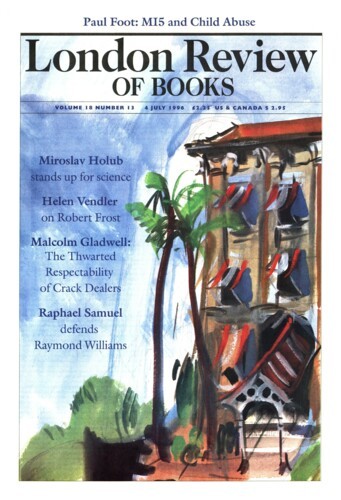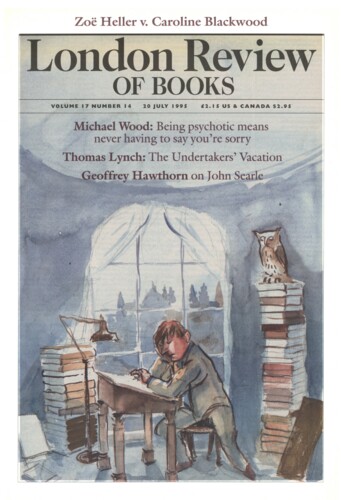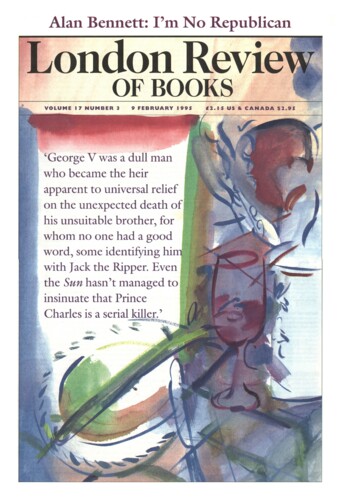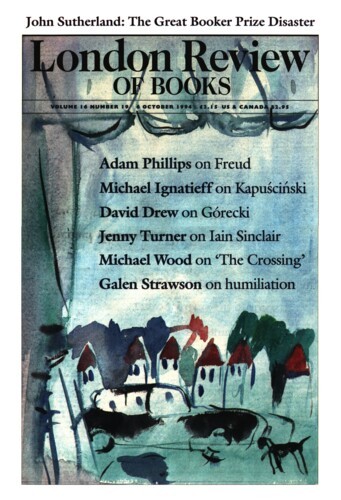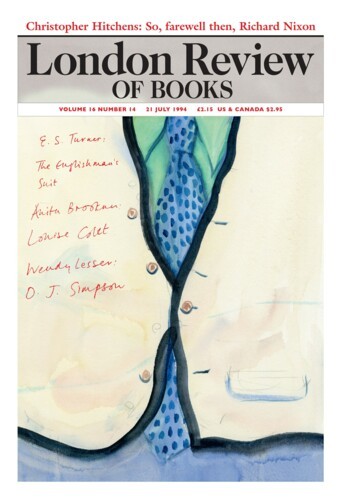Obstacles
Penelope Fitzgerald, 4 July 1996
It would be quite possible to read about Edward Thomas and wonder how it was that so many people made such allowances for him. A man who had a house built for himself and then refused to live in it, he tormented his wife and children with his restlessness – he calculated he was never happy for more than a quarter of an hour in the day. Two women, his wife Helen and the good-hearted but overwhelming Eleanor Farjeon, spoiled him as much as they dared. He couldn’t get on with his son and was sometimes ruthless with his friends – ‘people soon bore him’ said Walter de la Mare sadly – although most of them were called on to help him in his struggle with depression. But Edward Thomas was, and is, greatly loved. His scholarly biographer, George Thomas, irritated as he is by what he calls the ‘dithering’ of Edward Thomas’s early life, treats him not only with respect but with love.’
